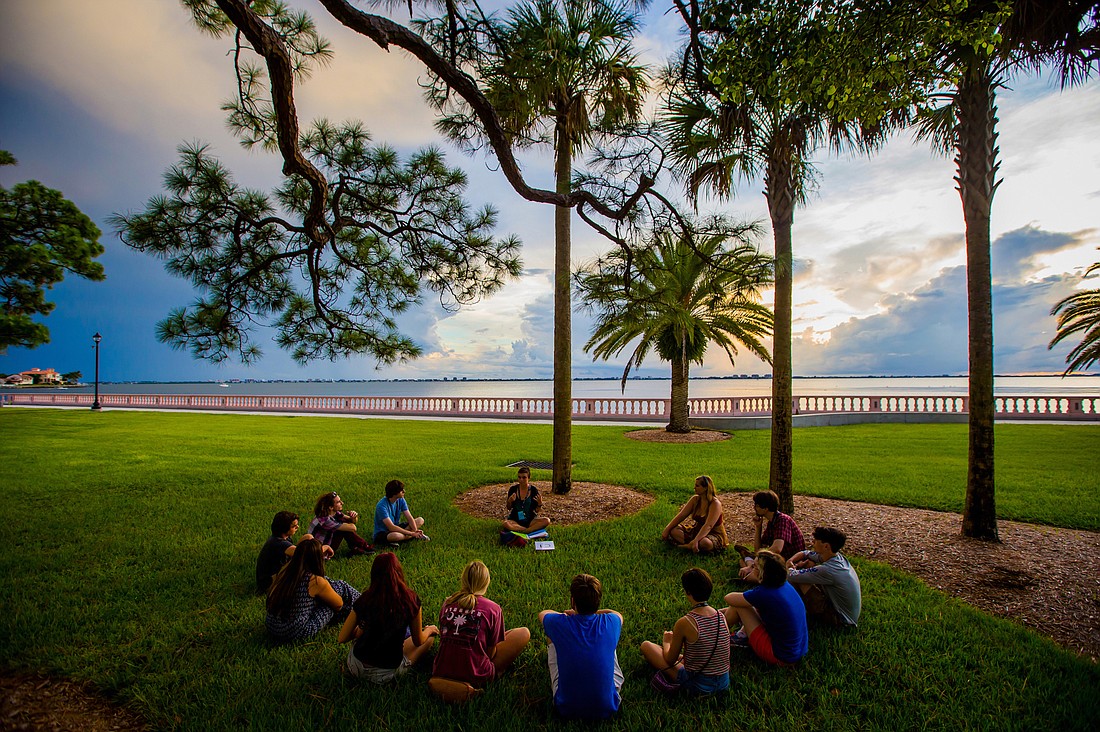- February 7, 2026
-
-
Loading

Loading

In 2017, when New College of Florida’s student population was around 900, President Donal O’Shea said the school had a goal of growing that figure to 1,200 by 2022.
Things have trended in the other direction since then: At the beginning of the 2020 school year, enrollment is between 700 and 800 students. It’s not just a byproduct of COVID-19, either; the student body began shrinking shortly after the state approved New College’s plans for growth in late 2016.
Chris Kinsley, the vice president for finance and administration at New College, said new state funding metrics created incentives for other schools to target the same high-performing students New College hoped to attract. After the school adjusted its recruitment strategy, state legislators proposed consolidating New College into Florida State University or University of Florida.
A merger bill died in March — shortly after the first COVID-19 cases appeared in Florida.
“Our timing couldn’t have been worse, in some ways, for the growth plan,” Kinsley said.
Still, New College remains focused on finding ways to expand its student body. On Aug. 27, the city’s planning board voted unanimously to approve a development agreement for the New College campus. Although updating the campus development agreement every five years is a statutory requirement, the documents filed with the city continue to outline benchmarks for growth.
Ultimately, the school hopes to get to 1,600 students. In a previous interview with the Sarasota Observer, O’Shea said there were a number of reasons why New College wanted to expand enrollment. Larger student bodies are correlated with improved performance statistics, such as graduation rate. More students and more faculty members allow the school to offer a broader curriculum.
Among the schools in the top 20 of U.S. News and World Report’s ranking of liberal arts colleges, none has an enrollment smaller than 1,300.
“The colleges that we compete with, the ones at the very top — we’re very good, but we’re not there,” O’Shea said in 2017.
Kinsley, who joined New College in March, said the school is serious about its growth plans. The college recently hired a vice president for enrollment management, Damon Wade, from the University of Virginia School of Continuing and Professional Studies. The college’s board of trustees put together a committee to develop strategies for aligning the expansion with the college’s existing mission. COVID-19 has created new conversations about how New College could expand its online offerings. Kinsley said staff discusses recruitment tactics weekly, if not daily.
The New College master plan, adopted in 2015, outlines more than 430,000 square feet in new facilities to accommodate a larger student body through 2035.
Kinsley said it’s unlikely everything in the plan gets built out.
The document helps guide the growth of the campus, but it doesn’t dictate things. Construction is going to be targeted, changing depending on funding availability or other shifting circumstances. For now, the school is concentrating most on improving its housing offerings.
Kinsley said the focus on growth would be urgent for New College no matter what because school administrators are strident believers in the benefits a larger student body would offer. But he acknowledged that the recent merger discussion introduces yet another incentive: If the school can demonstrate success on this front, legislators might be less interested in consolidating New College into a larger university.
“For a lot of reasons, it makes sense,” Kinsley said. “But now on top of all the good carrot reasons, now there is sort of the stick.”
As officials attempt to attract more students, they’re also determined not to let growth negatively affect some of the defining characteristics of New College, which has historically touted its intimate setting as a strength.
“We feel we have a good product,” Kinsley said. “We’ve just got to get the message out there more effectively.”